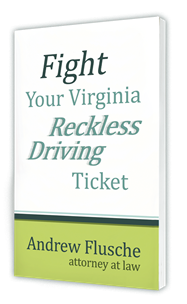Judges Have Power to Amend DWI to Reckless Driving
The Supreme Court of Virginia recently considered (Kelley v. Stamos) whether or not a General District Court judge could amend a Virginia DWI charge to reckless driving. It’s a complicated procedural case, but the Virginia Supremes basically said that the Circuit Court couldn’t order the trial judge to find a defendant guilty of DWI.
In the underlying DWI case, the defendant plead guilty to DWI. The trial judge had the driver do some things such as community service and VASAP, and then the judge amended the charge to reckless driving. The Commonwealth Attorney got the Circuit Court to order the trial judge to find the defendant guilty of DWI.
The Supreme Court ruled that in this case the trial judge no longer had the authority to modify his judgment, because 21 days had passed since he found the driver guilty of reckless driving.
But here’s the key point the Court said:
“If Judge Kelley never found Nobles guilty of DWI, Judge Kelley retained the authority to amend the warrant as provided in Code § 16.1-129.2.”
The Supreme Court didn’t say that the trial judge properly amended this warrant to reckless driving. But they clearly said the judge had the power to make an amendment, even though the driver plead guilty.
This lines up with the Court’s Hernandez decision from 2011:
“Until the court enters a written order finding the defendant guilty of a crime, the court has the inherent authority to take the matter under advisement or to continue the case for disposition at a later date.”
Virginia judges have power. If the General Assembly would stop trying to neuter them with subtle threats, we might see more justice in the Commonwealth.




